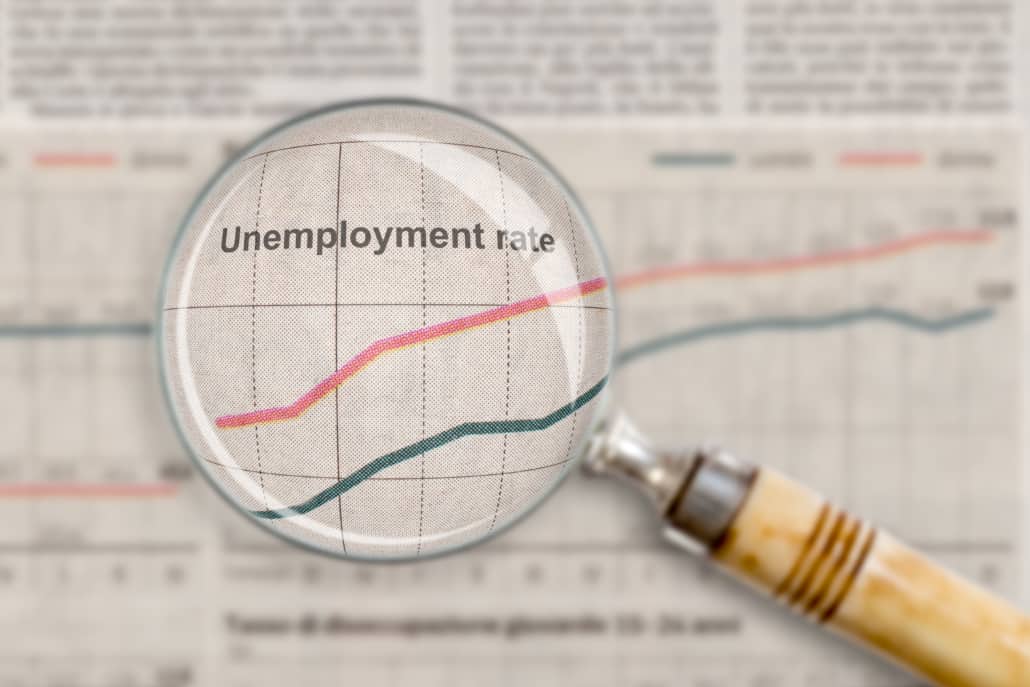The inflation effect on the supply chain and what’s next
How does inflation affect supply chain operations?
How can companies overcome inflationary issues? Check for this post for details!
Table of content:
Table highlighting key impacts of inflation on the supply chain:
| Impact Area | Key Insights | Value to Businesses |
|---|---|---|
| Rising Production Costs | Increased energy, raw material, and labor expenses | Affects profitability and pricing strategies |
| Supplier Contract Challenges | Difficulty renegotiating terms due to price fluctuations | Requires strategic planning and supplier collaboration |
| Transportation Disruptions | Higher fuel costs and logistics delays | Impacts delivery schedules and customer satisfaction |
| Stock Shortages | Reduced availability of raw materials | Necessitates better inventory management |
Inflation has become a massive problem for all industries, including the supply chain sector because it directly influences manufacturing costs and logistics. For example, a supply chain can’t run efficiently, reliably, and smoothly when you spend more on raw materials, energy, and transportation.
Consequently, companies experience production line bottlenecks, shipping delays, and warehouse stockouts. The problems worsen as inflation becomes unbearable, leading to financial recession. Companies can rely on modern technologies and cutting-edge tools to improve their strategies. Read on!
The primary cause of inflation in the supply chain is an imbalance or lack of transparency between supply and demand. The overall price increase causes significant issues for companies and consumers because people do not have enough purchasing power.
At the same time, consumers receive fewer goods, products, and services with the same amount of money. Inflation affects the cost of living and supply chain due to price increases. So this includes the rise in prices of energy, raw materials, and other processes to manufacture goods.
According to Black Rock, the increase in inflation over the last few years are due to sector-specific and economy-wide supply chain constraints. A research publication highlights that the Covid-19 pandemic played a massive role in supply chain disruptions and inflationary effects.
The Covid-19 pandemic caused shutdowns of businesses and supply chain disruptions, leading to supply-driven inflation. The pandemic has also caused changes in consumer habits.
For instance, people have become more inclined toward online shopping. However, this has caused bottlenecks in various industries and excess capacities in others.
So, prices tend to increase faster due to these bottlenecks. At the same time, prices fall in response to spare capacities. However, overall, the pandemic and online shopping trends have increased inflation.

According to EY, the pandemic has caused a dramatic and sudden change in supply chain operations worldwide. The primary problem is due to the random lockdowns in an attempt to reduce the risk of Covid-19.
Researchers at EY say that mitigating the risk of virus spread has significantly impacted the supply of goods and materials globally. Besides, the Federation of American Scientists states that local and national lockdowns have increased unemployment.
The reason is that the pandemic forced companies to shut their operations and reduce the risk of virus infections. As a result, this substantial unemployment has forced governments worldwide, including the United States, to prop up the economy through different economic strategies, such as stimulus plans.
Stimulus strategies run by the U.S government result in a massive influx of money to the country’s economy. Consequently, these plans increased the currency supply, reducing its overall value.
A news article on Forbes states that lockdowns at a global level, including in the U.S and China, caused a significant economic downturn. Businesses in the United States fail to import materials and goods from suppliers in other countries.
So, they heavily rely on national suppliers, but the problem is that suppliers at the local levels charge higher prices. According to GBP, lockdowns at the national level due to the Covid-19 pandemic disrupted supply chain operations because companies/sectors closed ports, causing massive delays in the flow or supply of raw materials.
Moreover, companies experienced disruptions in importing internationally manufactured goods and products, adding more strain to the economy. That’s why businesses changed their prices, weakening the purchasing power of the U.S dollar. So this caused significant inflation.

Inflation is a massive challenge for supply chains worldwide. Companies must improve their business and stock visibility, streamline planning, and reduce production costs to stay competitive.
Because global supply chains are interconnected, price increases can affect operations worldwide. Numerous factors contribute to supply chain inflation. The most critical factors among them are the rise in goods and services prices and the cost of materials, energy, and labor.
Although consumer price inflation was stable during the last two decades, the Covid-19 pandemic has caused massive disruptions in the supply chain, increasing prices of goods, products, and services.
However, rising manufacturing costs are not only due to inflation but also changes in demand. As a result, it has caused stockouts and bottlenecks in the supply chain operations and processes.
For instance, inflation has caused shortages in raw materials, semi-finished, and finished products/goods, causing significant challenges for companies in the supply chain.
Research shows that due to inflation worldwide, procurement has become more daunting, complex, and troublesome. The demand falls by passing the increased costs on to consumers.
That’s why producers require fewer goods, products, and services. Companies need more focused, detailed, reliable, and agile planning with support from different stakeholders to streamline sales and other processes—these stakeholders include logistics, warehousing, sales, and marketing teams.
According to Yara, higher energy prices transfer value in the economy, particularly from consumers to producers. The problem is due to the increasing prices of natural gas. Similarly, most companies in the food and beverage industry experience massive increases in the costs of products and services sold.
F.A.O. highlights that these problems are due to double-digit increases in energy and agriculture commodities. So, the food price index has reached an all-time high during the Covid-19 pandemic. IRU reports that shipping disruptions, materials shortages, and labor problems have also driven up logistic and transportation costs.
A financial article published on Yahoo highlights that shortage of materials and services due to inflation has directly impacted supply chain operations globally. Economic activity rebounded, and continued strain on supply chains has increased prices. Thus, this has negatively impacted over 150 industries worldwide, including the supply chain sector.
Bear in mind that these shortages will substantially affect the production of various goods, products, and services. For example, the electronics industry has experienced massive disruptions in the supply of chips. As a result, this has led to low production:
Because businesses have shifted their approach to using green energy, the commodities required to power the transition are in increasing demand. Therefore, green energy has become more expensive worldwide.
For instance, E.C.B. reports that lithium, a critical element used in electric car batteries, has faced increased prices. The cost of production has increased by 1000% since the inception of the Covid-19 pandemic.
The same is true for other elements, such as copper, required for manufacturing electrical cables. So, expensive green energy is a significant cause of inflation, directly affecting supply chain companies worldwide.

Because inflation increases prices for goods, products, and services, companies must make substantial efforts to address these problems. Otherwise, the supply chain worldwide will experience massive disruptions, leading to economic recession in the industry.
Businesses in the supply chain sector must ensure their teams are well-trained, experienced, and well-versed in the impact of inflation on the supply chain. Thus, they can mitigate the risks, streamline operations, generate value, and stay competitive. Here are a few strategies to address inflation problems in supply chain operations.
Because sellers have fixed-priced agreements with consumers, they must negotiate with customers to adjust these contracts. The purpose is to keep the prices lower or stable and streamline supply chain operations.
For example, when you enter such a discussion, you must consider valuable methods or ways to incentive your clients. Thus, you can implement a meaningful price adjustment and eliminate fixed prices. Make sure your clients agree to these changes.
For instance, consumers who receive price adjustment requests must confirm that these are associated with inflation and not an attempt by suppliers to boost the bottom line. We recommend seeking detailed measures that support the price adjustments.
Remember, this requires companies in the supply chain to demonstrate how much their costs have elevated above expectations. Similarly, consumers must consider what products/goods/services they would request in return for accepting a price-adjustment request.
For example, this includes adjusting the goods/products quantity or making changes to the delivery time. Moreover, clients facing requests regarding price increases must consider whether those requests are for consumers to obtain price-downs in the future.
In addition to considering contractual strategies to overcome inflation, businesses in the supply chain should also implement actionable methods to reduce costs more effectively and reliably. However, this requires making intelligent decisions based on historical and real-time data.
For example, you must streamline supply chain operations by making smart decisions. To pursue or implement this strategy, you must determine what areas drive increased spending.
At the same time, you must consider methods to manage these areas efficiently and reliably. For instance, you can assess whether you can use different inputs to lower costs and processes that you can streamline.
Modern technologies can help companies collect and analyze massive volumes of data and generate valuable insights. These insights influence their decisions, allowing them to streamline supply chain operations while combating inflation.
Besides, labor constitutes a higher cost percentage, preventing companies from maintaining financial stability. So, companies can double down on technological innovations to reduce headcount.
On the other hand, your company can follow other pricing models as costs rise. For example, you can opt for a pay-per-use model instead of purchasing heavy equipment and machines for manufacturing.
Diversifying your supply chain operations is another best way to address inflation. Companies can diversify their supply chain to ensure they provide the reliability, flexibility, and sustainability required to weather turbulent periods.
Although adding more stakeholders or links to the supply chain will not significantly lower costs in the short term, it ensures a company continues to perform better and function smoothly, even if problems like material shortages, price increases, and other disruptions occur.

Inflation is one of the most significant problems for companies in the supply chain industry because it causes a massive ripple effect on prices. As a result, this increases supply chain costs, causing more inflation.
Inflation affects production costs, including raw materials, energy, transportation, and wages. The good news is that companies can overcome these problems by following the strategies in this post. Until Next Time!

 Supply Chain Lessons from 2022
Supply Chain Lessons from 2022